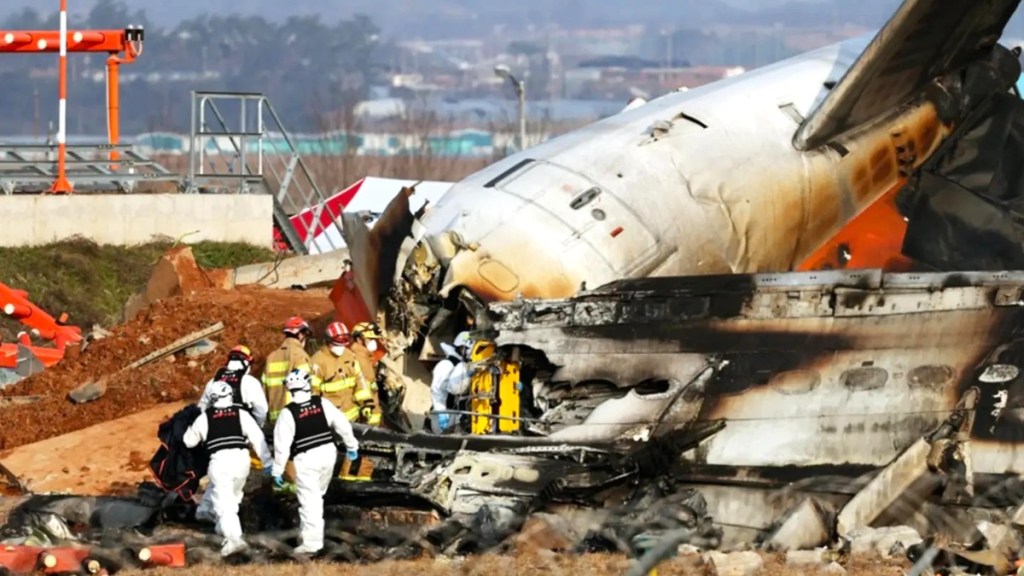The tragic crash of a Jeju Air Boeing 737-800 at Muan International Airport, South Korea, has reignited global scrutiny over the safety record of one of Boeing’s most widely used aircraft models. The accident, which claimed 179 lives and is South Korea’s deadliest aviation disaster to date, has cast a spotlight on Boeing and the aviation industry’s oversight mechanisms.
The ill-fated aircraft reportedly attempted to land without deploying its landing gear, skidded off the runway, and collided with a concrete barrier before bursting into flames. Investigators, including representatives from Boeing and the US National Transportation Safety Board (NTSB), are currently examining the wreckage to identify the precise causes of the crash. The flight data recorder has been significantly damaged, necessitating its transfer to the United States for further analysis.
Growing Safety Concerns
This incident adds to a troubling safety record for the Boeing 737-800, which has been involved in a series of fatal accidents globally. While the model has a reputation for reliability among airlines, these recurring incidents have raised questions about potential mechanical vulnerabilities and the adequacy of its maintenance protocols.
In response, South Korea’s Ministry of Land, Infrastructure, and Transport has launched a sweeping inspection of all 101 Boeing 737-800 aircraft operated by domestic carriers, extending the review period to ensure comprehensive evaluations. Jeju Air, already facing intense public scrutiny, has seen over 67,000 reservation cancellations since the crash, reflecting eroding consumer confidence.
Boeing’s Accountability Under Fire
This tragedy presents a significant challenge for Boeing, which is still recovering from reputational damage caused by issues with its 737 MAX fleet. Analysts argue that the company’s involvement in the investigation will be closely watched for transparency and responsiveness. “Boeing’s handling of this crisis could have long-term implications for its brand and its relationships with airlines globally,” said an industry expert.
Critics have pointed to the recurring pattern of accidents involving Boeing aircraft as indicative of deeper systemic issues, ranging from potential design flaws to lapses in regulatory oversight. Calls for a reassessment of the 737-800’s safety certifications have gained momentum, with aviation authorities and experts urging stricter compliance measures.
Impact on the Airline Industry
The ripple effects of the crash extend beyond Jeju Air. South Korean airlines have faced increased regulatory scrutiny, and the global aviation community is closely monitoring the investigation’s findings for broader implications on operational safety standards.
While the probe continues, families of the victims and the public at large are demanding accountability—not only from Jeju Air but also from Boeing. The outcome of this investigation will likely shape the narrative around one of the most prominent names in aerospace manufacturing.
As Boeing seeks to reassure its stakeholders and restore confidence, the Jeju Air crash serves as a stark reminder of the aviation industry’s paramount responsibility: ensuring passenger safety above all else.

